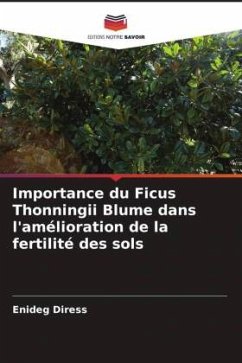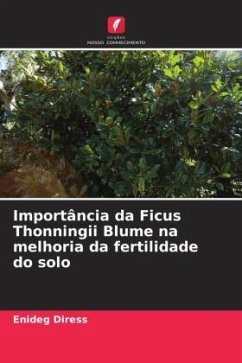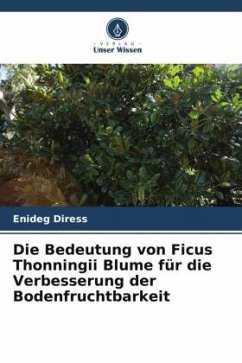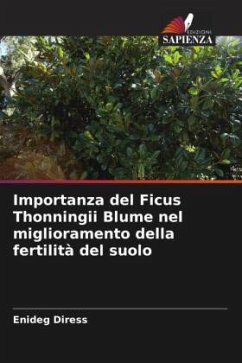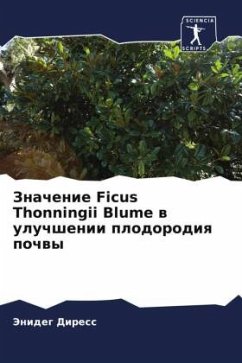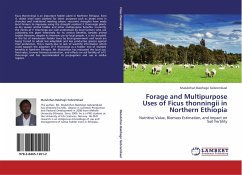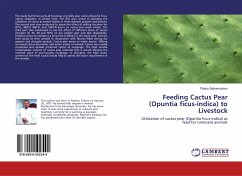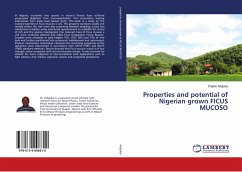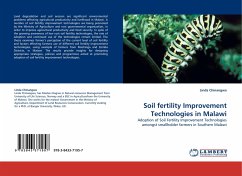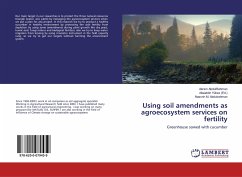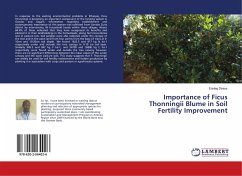
Importance of Ficus Thonningii Blume in Soil Fertility Improvement
Versandkostenfrei!
Versandfertig in 6-10 Tagen
33,99 €
inkl. MwSt.

PAYBACK Punkte
17 °P sammeln!
In response to the existing environmental problems in Ethiopia, Ficus Thonningii is becoming an important component of the farming system in Gondar and Gojjam. Information regarding establishment and socioeconomic importance of this species was collected from Gondar Zuria district by interviewing 45 household heads within three villages. About 84.4% of them indicated that they have recognized its benefits and planted it in their landholdings in the homesteads, along farm boundaries and in pasture lots. Soil samples were also collected under the canopy of the tree and in the open land from four...
In response to the existing environmental problems in Ethiopia, Ficus Thonningii is becoming an important component of the farming system in Gondar and Gojjam. Information regarding establishment and socioeconomic importance of this species was collected from Gondar Zuria district by interviewing 45 household heads within three villages. About 84.4% of them indicated that they have recognized its benefits and planted it in their landholdings in the homesteads, along farm boundaries and in pasture lots. Soil samples were also collected under the canopy of the tree and in the open land from four points from the base of trees at 0-10cm and 10-20cm soil depth. We found 1623.5 and 877 kg N ha-1 respectively under and outside the tree canopy in 0-10 cm soil layer. Similarly 945.5 and 847 kg P ha-1, and 24700 and 16800 kg C ha-1 respectively, were found under and outside the tree canopy, however there are no significant differences between the mean values of the under canopy and the open pasture soils. This study suggests that F. Thonningii can widely be used for soil fertility maintenance and fodder production by planting it in association with crops and pasture in agroforestry systems.



